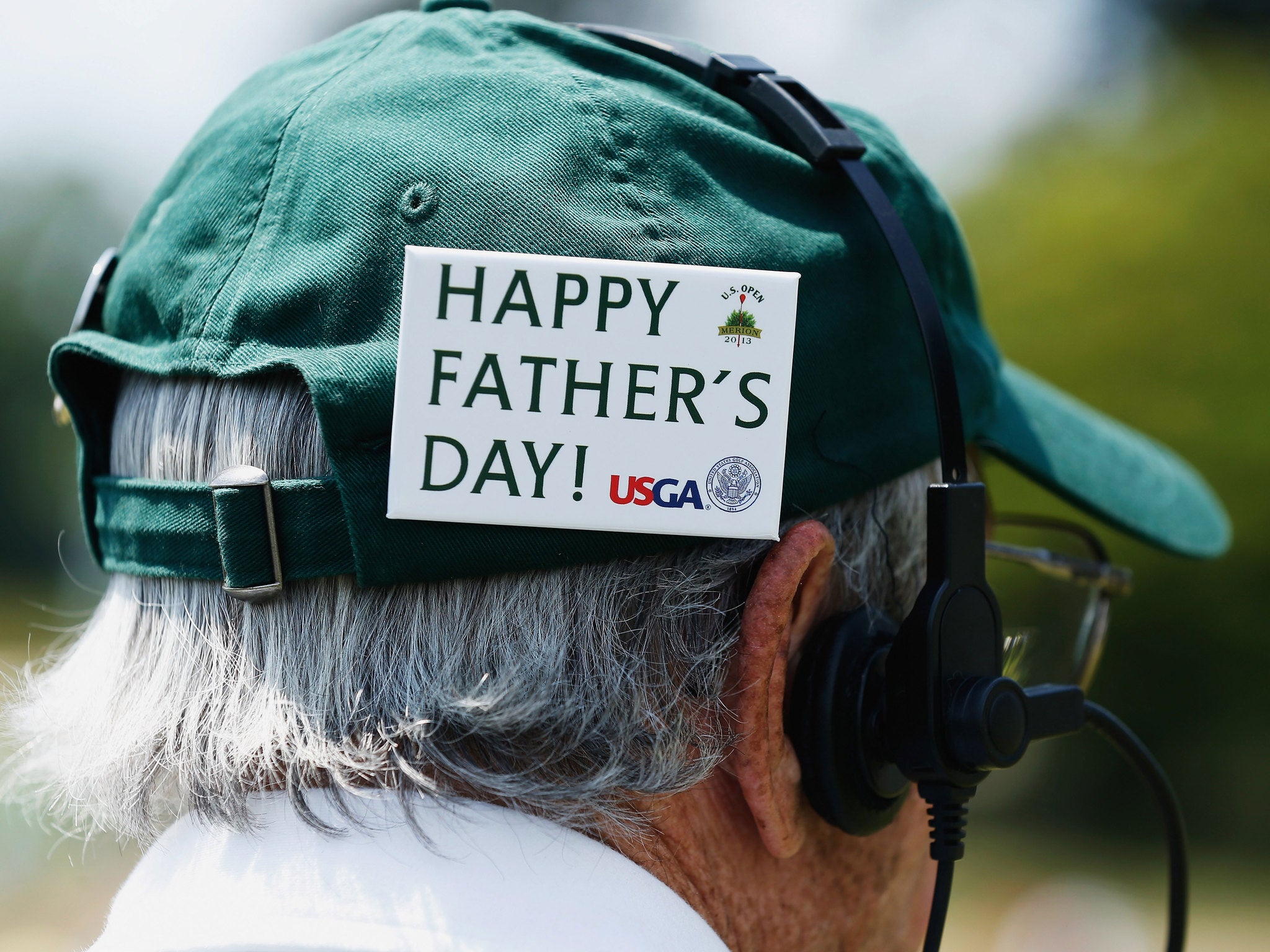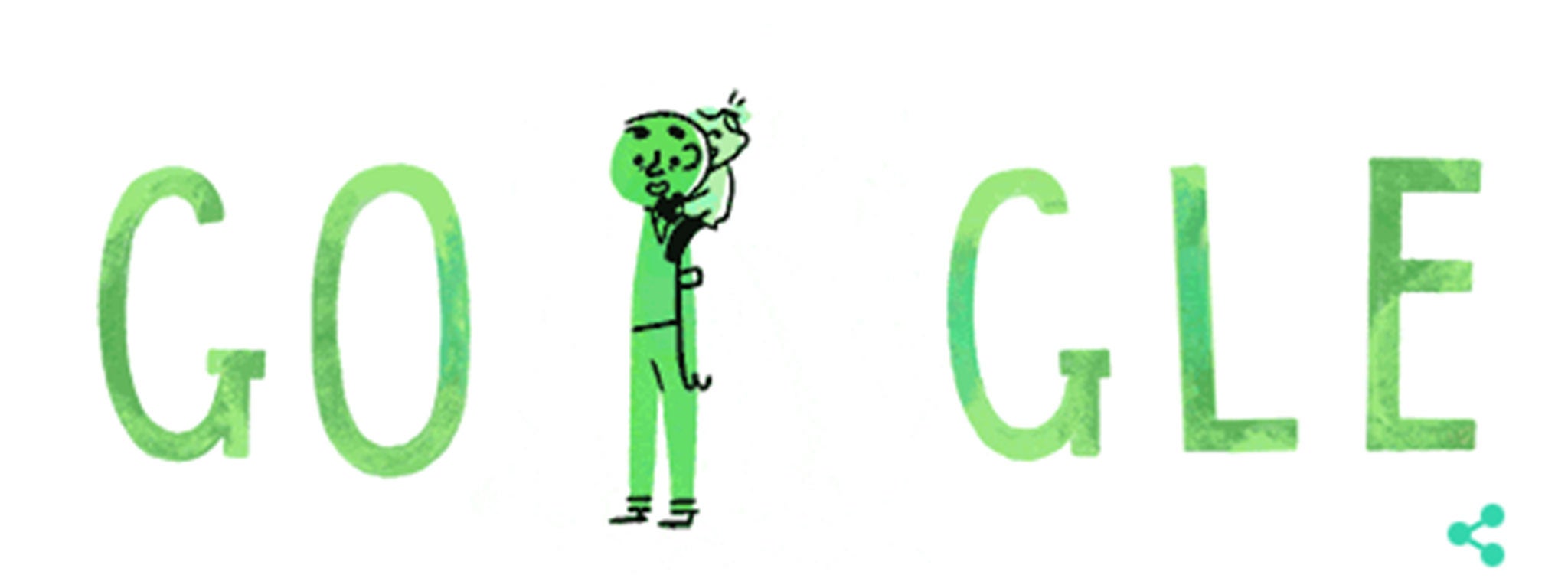Father's Day: Google marks the occasion with a Doodle, but is it really just a 'Hallmark Holiday'?
Just how did the tradition for giving dads socks and ties on the third Sunday of June come about?

Your support helps us to tell the story
From reproductive rights to climate change to Big Tech, The Independent is on the ground when the story is developing. Whether it's investigating the financials of Elon Musk's pro-Trump PAC or producing our latest documentary, 'The A Word', which shines a light on the American women fighting for reproductive rights, we know how important it is to parse out the facts from the messaging.
At such a critical moment in US history, we need reporters on the ground. Your donation allows us to keep sending journalists to speak to both sides of the story.
The Independent is trusted by Americans across the entire political spectrum. And unlike many other quality news outlets, we choose not to lock Americans out of our reporting and analysis with paywalls. We believe quality journalism should be available to everyone, paid for by those who can afford it.
Your support makes all the difference.Father's Day is widely seen as a 'Hallmark Holiday', made up by card companies to sell tacky merchandise, and every year results in impressive shows of feigned enthusiasm from dads across the country when they're handed yet another pair of novelty socks or a 'World's Best Dad' mug.
However, Father's Day does have a slightly longer history than you would expect, first being celebrated following a tragic mining accident which killed hundreds of fathers, and picking up national and international success after it was latched onto by businesses.
As Google marks the occasion with an animated Doodle on its homepage, here are some facts you might not know about the day for dads:

How did it start?
The first celebration of Father's Day is widely believed to have been on 5 July, 1908 in West Virginia. It was started by a woman called Grace Clayton, who is thought to have been inspired to start the holiday after the success of Mother's Day, which had been observed in various forms since the 1800s, and was more formally publicised a few years previously.
The first Father's Day celebration was in honour of the men killed in the Monongah Mining Disaster in December 1907. A huge explosion and collapse in a mine near to where Clayton lived, killing around 360 men and leaving more than 1,000 children without fathers.
Clayton suggested that her pastor honour the dead fathers, and the first 'Father's Day' was held at the Williams Memorial Methodist Episcopal Church in Fairmont, West Virginia.
What happened next?
While Clayton is widely seen as the creator of Father's Day, her brand of celebrations never really took off on a wide scale - possibly due to the fact that came the day after Independence Day, naturally a much bigger celebration.
The next time it was celebrated was in 1910, organised by Sonora Smart Dodd. She was also inspired by Mother's Day, and persuaded her pastor to deliver a sermon marking Father's Day on the third Sunday of June at the Spokane YMCA.
The idea spread throughout the city that year, but the idea died out when Dodd moved to Chicago.
She returned to Spokane in the 1930s and picked up the cause again. With an American entrepreneurial spirit, she set about selling the idea to companies that would benefit from the idea - ties, tobacco pies, and other 'manly' goods.
Shortly after, the Father's Day Council was established by a group of New York menswear retailers to promote the holiday.
Naturally, there was some public resistance, as people saw it as a cash-in by the companies that promoted the holiday. This continued for a few decades, but the businesses persisted.
During this time, there were a few failed attempts to make Father's Day an official holiday, but Congress resisted. Finally, in 1966, President Lyndon B Johnson issued a Presidential proclamation honouring fathers, and in 1972, President Richard Nixon signed it into law and made it an official holiday.
Why is it spelled like that?
Really, it should be spelled 'Fathers' Day', as it honours all fathers, not just one. Dodd used this spelling when referring to the holiday, but the spelling was corrupted over time.
In 1913, a bill that proposed making it a national holiday was submitted to Congress, with the spelling 'Father's Day', and the name seems to have stuck since then.
When is it celebrated?
Mostly, Father's Day is observed on the third Sunday of June - this year, that's 21 June. However, in some countries, the observance varies.
In Russia, Father's Day is generally encompassed in Defender of the Fatherland Day - a holiday that officially celebrates the Russian armed forces, but has since become a day where women give gifts to the men in their lives.
As well as fathers, sons, boyfriends, fiancees, grandfathers, uncles, nephews, and even male colleagues get given small presents just for being guys.
In the Nordic countries of Sweden, Finland, Norway and Iceland, Father's Day falls on the second Sunday of November, so Scandinavians who are concerned that they've forgotten about the day don't need to worry.
In Bulgaria, Father's Day comes on Boxing Day. And since Bulgaria is unusual for an Eastern Orthodox country for celebrating Christmas on 25 December, Bulgarian dads get two straight days of celebrations.
So, when you're treating your dad to a nice toasty new pair of socks or an off-license bottle of whisky tomorrow, just remember that this whole day was popularised by a group of businessmen in 1930s New York who wanted to sell more ties.
Happy Father's Day.
Join our commenting forum
Join thought-provoking conversations, follow other Independent readers and see their replies
Comments